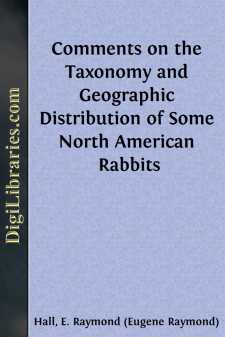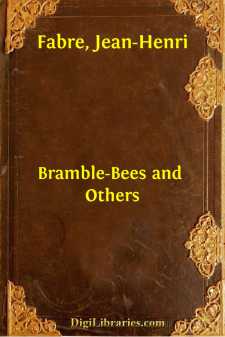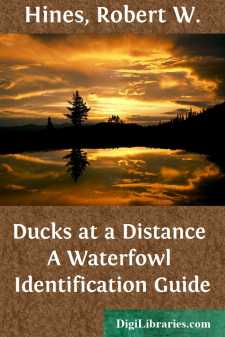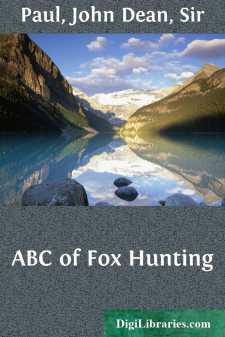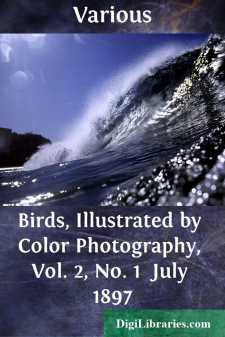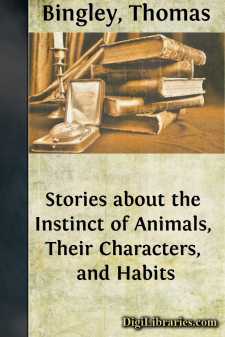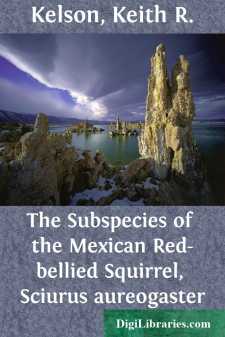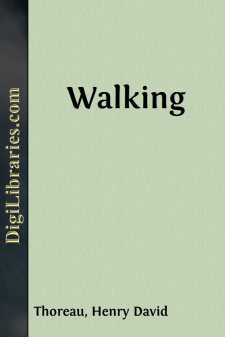Nature
Nature Books
Sort by:
IN preparing maps showing the geographic distribution of North American lagomorphs, some conflicting statements in the literature have led us to examine the pertinent specimens of the Florida cottontail and the Audubon cottontail with results as given below. The study here reported upon was aided by a contract between the Office of Naval Research, Department of the Navy, and the University of Kansas...
more...
by:
Barnum Brown
Chapter I. Its Antiquity, Duration and Significance in Geologic History. Palæontology deals with the History of Life. Its time is measured in geologic epochs and periods, in millions of years instead of centuries. Man, by this measure, is but a creature of yesterday—his "forty centuries of civilization" but a passing episode. It is by no means easy for us to adjust our perspective to the...
more...
by:
Jean-Henri Fabre
CHAPTER 1. BRAMBLE-DWELLERS. The peasant, as he trims his hedge, whose riotous tangle threatens to encroach upon the road, cuts the trailing stems of the bramble a foot or two from the ground and leaves the root-stock, which soon dries up. These bramble-stumps, sheltered and protected by the thorny brushwood, are in great demand among a host of Hymenoptera who have families to settle. The stump, when...
more...
Last Bull That was what two grim old sachems of the Dacotahs had dubbed him; and though his official title, on the lists of the Zoölogical Park, was “Kaiser,” the new and more significant name had promptly supplanted it. The Park authorities—people of imagination and of sentiment, as must all be who would deal successfully with wild animals—had felt at once that the name aptly embodied the...
more...
by:
Robert W. Hines
Identification is Important Identifying waterfowl gives many hours of enjoyment to millions of people. This guide will help you recognize birds on the wing—it emphasizes their fall and winter plumage patterns as well as size, shape, and flight characteristics. It does not include local names. Recognizing the species of ducks and geese can be rewarding to birdwatchers and hunters—and the ducks....
more...
by:
John Dean Paul
A.was Andrews my man, who was A.1. his art in.B.my Buckskins & Boots, ready for me to start in.C.The Cover-Hack, giving my Lord's drag the go by.D.The Slap up Dog-Cart, which the driver you know by.E.was the Earth-stopper, early and willing.F.were the Fox-hounds, so far famed for killing.G.was the Gorse-Cover, certain for foxes.H.were the Hunters, just fresh from their boxes.I.was the...
more...
by:
Various
BIRD SONG. T SHOULD not be overlooked by the young observer that if he would learn to recognize at once any particular bird, he should make himself acquainted with the song and call notes of every bird around him. The identification, however, of the many feathered creatures with which we meet in our rambles has heretofore required so much patience, that, though a delight to the enthusiast, few have...
more...
by:
Thomas Bingley
CHAPTER IV. Uncle Thomas introduces to the Notice of the Young Folks the Ettrick Shepherd's Stories about Sheep; and tells them some Interesting Stories about the Goat, and its Peculiarities. "I dare say, Boys, you have not forgotten the Ettrick Shepherd's wonderful stories about his dogs. Some of those which he relates about sheep are equally remarkable, and as he tells them in the same...
more...
by:
Keith R. Kelson
In his excellent taxonomic treatment of the tree squirrels of Mexico and Central America, Nelson (Proc. Washington Acad. Sci., 1:15-110, 2 pls., May 9, 1899) recognized three subspecies of red-bellied squirrels, Sciurus aureogaster aureogaster F. Cuvier, Sciurus aureogaster hypopyrrhus Wagler, and Sciurus aureogaster frumentor Nelson. In his lists of specimens examined, Nelson (op. cit.:42 and 44)...
more...
I wish to speak a word for Nature, for absolute freedom and wildness, as contrasted with a freedom and culture merely civilвÐâto regard man as an inhabitant, or a part and parcel of Nature, rather than a member of society. I wish to make an extreme statement, if so I may make an emphatic one, for there are enough champions of civilization: the minister and the school committee and every one...
more...


